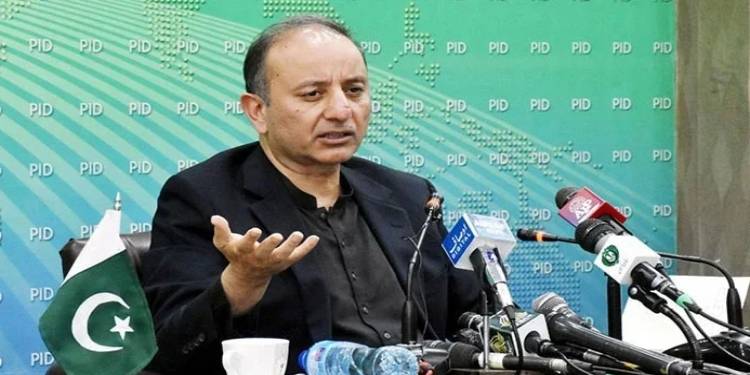
Minister of State for Petroleum Musadik Malik reiterated that the proposed petrol subsidy plan will not jeopardize the loan agreement in spite of concerns voiced by the International Monetary Fund (IMF), reported The News on Friday.
The minister gave off the impression that he was confident in his ability to persuade the IMF to accept the proposed plan by using the differential petrol pricing mechanism as a model.
The $6.5 billion loan project has been on hold for months, but Pakistan is currently in talks to restart it. Pakistan has given in to the demands of the International Monetary Fund, increasing hardships for the general public and seriously harming the country's economy.
The Fund had asked the government for information on its plan to subsidize petrol because it claimed the announcement had not been made in confidence.
Malik defended the idea by pointing out that the government has previously introduced differential gas pricing in the gas industry, charging the wealthy more while offering it to the poor at lower prices.
He added that two queries from the finance ministry regarding the specifics of cross-fuel subsidies had been discussed and thoroughly addressed in order to satisfy the IMF.
Malik highlighted that the government would take no measures that may risk the IMF plan and expressed the hope that the Fund could be persuaded of the specifics of the proposed cross-fuel subsidy on the structure of the gas sector.
He clarified that the petroleum ministry had not prepared any new summaries and that it was the same summaries that were prepared last month when the prime minister gave his nod in principle in response to a question about why the petroleum ministry did not wait for the conclusion of the IMF's ninth review before sharing the cross-fuel subsidy-related summary.
He said that the IMF was a party to the negotiations between the finance ministry and the lender and that the institution had sent two inquiries about the proposed cross-fuel subsidy through it.
He expressed confidence that the proposed plan might persuade the IMF because it would be based on the pattern of gas pricing, which had been set up so that the rich paid more for it and the poor paid less.
Malik continued by saying that by raising the price of petrol for the wealthy sections of society, the government wanted to subsidize petrol for 800cc cars and motorcycles.
Musadik Malik asserted that it could be put into practice, notwithstanding reservations regarding its mechanisms.
The minister gave off the impression that he was confident in his ability to persuade the IMF to accept the proposed plan by using the differential petrol pricing mechanism as a model.
The $6.5 billion loan project has been on hold for months, but Pakistan is currently in talks to restart it. Pakistan has given in to the demands of the International Monetary Fund, increasing hardships for the general public and seriously harming the country's economy.
The Fund had asked the government for information on its plan to subsidize petrol because it claimed the announcement had not been made in confidence.
Malik defended the idea by pointing out that the government has previously introduced differential gas pricing in the gas industry, charging the wealthy more while offering it to the poor at lower prices.
He added that two queries from the finance ministry regarding the specifics of cross-fuel subsidies had been discussed and thoroughly addressed in order to satisfy the IMF.
Malik highlighted that the government would take no measures that may risk the IMF plan and expressed the hope that the Fund could be persuaded of the specifics of the proposed cross-fuel subsidy on the structure of the gas sector.
He clarified that the petroleum ministry had not prepared any new summaries and that it was the same summaries that were prepared last month when the prime minister gave his nod in principle in response to a question about why the petroleum ministry did not wait for the conclusion of the IMF's ninth review before sharing the cross-fuel subsidy-related summary.
He said that the IMF was a party to the negotiations between the finance ministry and the lender and that the institution had sent two inquiries about the proposed cross-fuel subsidy through it.
He expressed confidence that the proposed plan might persuade the IMF because it would be based on the pattern of gas pricing, which had been set up so that the rich paid more for it and the poor paid less.
Malik continued by saying that by raising the price of petrol for the wealthy sections of society, the government wanted to subsidize petrol for 800cc cars and motorcycles.
Musadik Malik asserted that it could be put into practice, notwithstanding reservations regarding its mechanisms.

